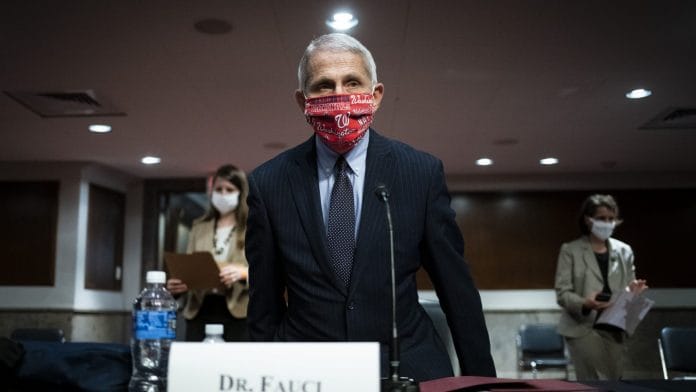Anthony Fauci has recently taken some heat in Washington for supposedly being too pessimistic about how long it will take to bring the Covid-19 pandemic under control. In fact, the head of the National Institute of Allergy and Infectious Diseases is probably being too optimistic, a new survey of leading health care company leaders and investors suggests.
In congressional testimony and news interviews, Fauci has said an effective and safe vaccine may be available by the end of 2020 or early 2021. Yet almost three in four health care executives and investors believe an effective and safe vaccine will not be widely available until the second half of 2021 or even later.
The survey, conducted by Lazard during the last week of May and first half of June, included 184 executives and 37 investors across pharmaceuticals and biotech, medical technology and health care services — representing many of the world’s largest health care entities, as well as smaller public and private companies and prominent investment firms.
The leaders were asked when they think an effective, safe vaccine will not only exist (arguably Fauci’s focus) but also be widely available — which is the most relevant question for the trajectory of the virus. It’s dangerous to expect a vaccine to be available sooner than is realistic.
Despite the intensive focus, investment and collaboration across the biopharmaceutical industry, including in new technologies (mRNA, for example) that may speed up development timelines, there are scientific and technical obstacles to creating Covid-19 vaccines, as well as manufacturing and logistical challenges. Such roadblocks explain why biopharma companies have developed only seven truly novel vaccines in the past 25 years.
Most health care leaders also believe it may very well be more than a year or two before there is an effective Covid-19 treatment — if one ever materializes. Indeed, only 49% of health care industry leaders put the likelihood of such a therapeutic at better than even.
Consequently, two-thirds of industry leaders expect the pandemic to continue into the second half of 2021 or beyond — a notably longer time frame than that envisioned by many people in government. The danger is that federal fiscal support will be withdrawn before the pandemic is actually over, and then the underlying economic damage will become more visible.
After the pandemic, the industry leaders expect to see a significant acceleration of many earlier trends in health care, especially the more efficient delivery of care to patients. They expect to see much greater use of virtual medicine, remote patient monitoring, and care in the home and other alternative places. Executives are also concerned about nationalism, protectionism and the need to secure domestic supply chains.
Most important, however, is their expectation that the world will remain in the grip of the pandemic for at least another year. No one group of people has perfect foresight, but as governments consider the path ahead, they would be foolish to ignore what leaders in the trenches of health care expect to occur.- Bloomberg
Also Read: Why we should not hype the hope for the Oxford-AstraZeneca Covid vaccine






